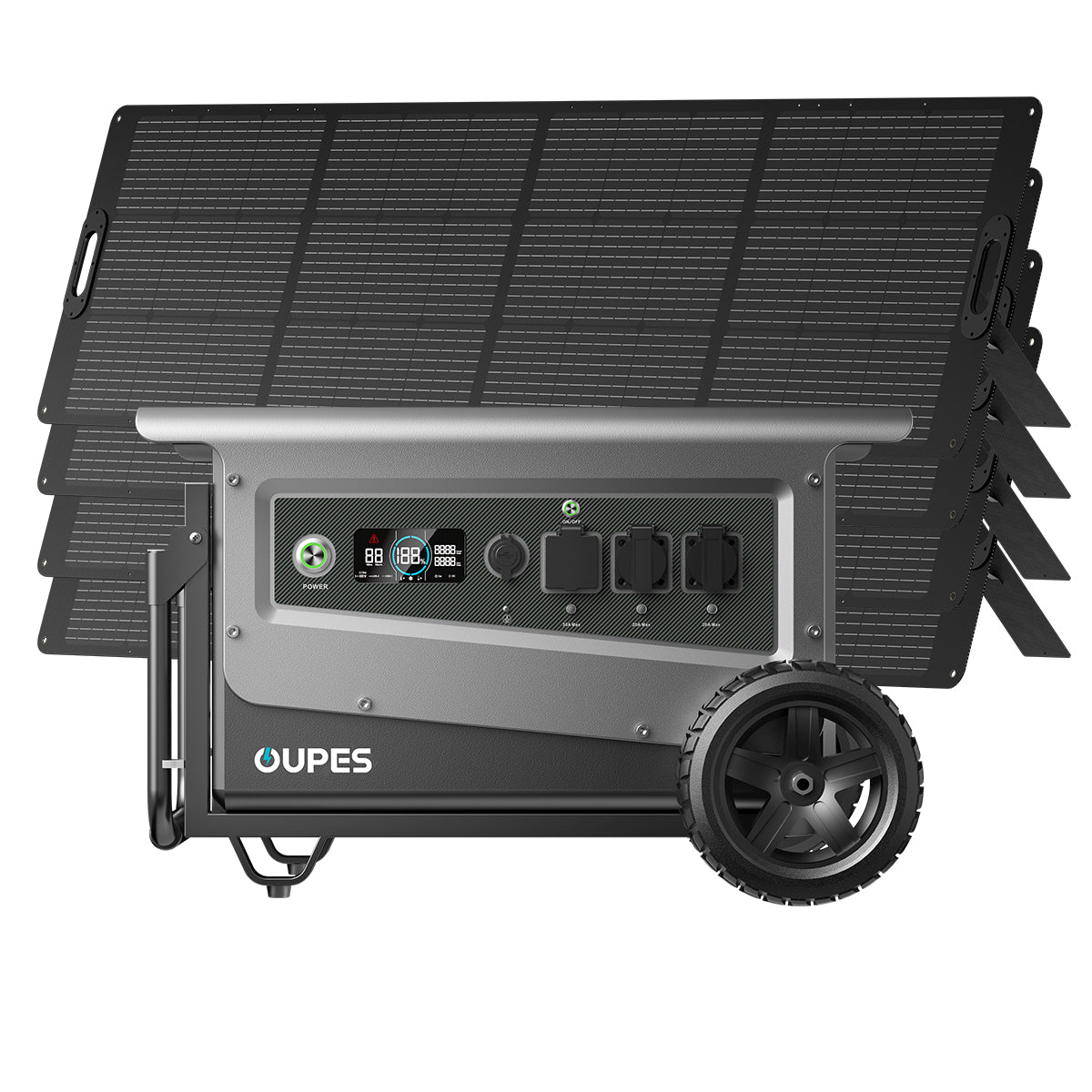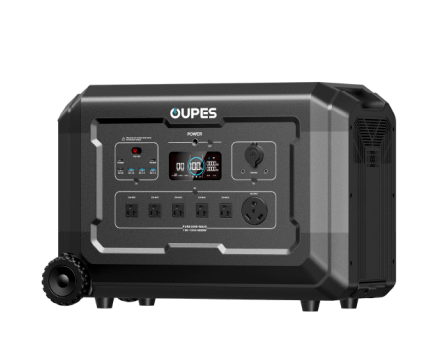
In today's world, the need for portable and reliable power sources has become more essential than ever. Whether you are an outdoor enthusiast, a frequent traveler, or someone who just wants to stay prepared in case of emergencies, portable power stations offer a promising solution. These devices are versatile and allow users to charge and power various electronics and appliances without being tethered to an electrical grid. But the real question is: Are portable power stations worth the investment? In this article, we will explore the pros and cons, uses, and considerations for purchasing a portable power station, helping you make an informed decision.
What is a Portable Power Station?
Before diving into whether a portable power station is worth it, it’s essential to understand exactly what it is and how it works. At its core, a portable power station is a compact, battery-powered unit designed to store electrical energy and deliver it to various devices. These stations come with multiple output options, such as AC outlets, DC carports, and USB ports, allowing you to power or charge a wide range of gadgets, from smartphones to small appliances.
Portable power stations are ideal for people who spend time off the grid, like campers or RV travelers, but they can also be incredibly useful during power outages or in emergency situations. The larger the capacity of the power station, the more devices it can power and the longer it can run them. Some of these power stations also come with solar panel compatibility, enabling users to charge their device using renewable energy, making them even more eco-friendly.
What makes portable power stations stand out from regular power banks is their ability to handle higher power loads, including the ability to power larger devices such as laptops, electric fans, or even small refrigerators. They are more robust than traditional battery chargers, offering a reliable and scalable solution for those who require more than just a quick phone charge while on the go.
Why You Should Consider a Portable Power Station
There are several compelling reasons why investing in a portable power station might be the right decision. First, it offers flexibility and freedom in powering your devices without depending on fixed power outlets. Whether you’re camping in the wilderness, tailgating at a sports event, or preparing for an unexpected power outage, having access to portable energy can significantly improve your experience.
One of the most significant advantages of a portable power station is its versatility. Depending on the model, it can power a variety of devices. Smaller units can charge phones, tablets, or cameras, while larger models can run heavier appliances such as small refrigerators, electric grills, or even power tools. This makes them indispensable for those who travel frequently or spend extended time in off-grid locations.
Moreover, these power stations come with a rechargeable battery, which means you don't need to rely on disposable batteries, making them an environmentally friendly alternative. With solar panel compatibility in many models, users can further reduce their carbon footprint by using renewable energy sources to recharge the unit.
Another significant advantage is the convenience they offer. In emergency situations, especially during natural disasters or blackouts, a portable power station can be a lifesaver. It ensures that you can continue to power essential devices, such as medical equipment, radios for emergency broadcasts, or lighting to navigate safely. For those who rely on electricity for medical reasons, having a backup power station could be crucial for maintaining a stable and secure environment.
How Long Do Portable Power Stations Last?
When considering whether a portable power station is worth the investment, one important factor to consider is how long it will last. The lifespan of a power station depends on several factors, including the quality of its battery, how often it is used, and how well it is maintained.
Most portable power stations use lithium-ion batteries, which are known for their efficiency and long lifespan. These batteries can typically last for hundreds or even thousands of charge cycles, making them a durable option. However, like any battery-powered device, the capacity of the power station may degrade over time. With proper care, a high-quality power station could last several years before its capacity significantly diminishes.
Another aspect to consider is the charging time. While portable power stations are relatively quick to charge when plugged into a wall outlet, charging times can vary depending on the power source and the size of the battery. Some models come with fast-charging features, while others may take longer to recharge, especially if you're using solar panels or a carport to replenish their power. The larger the power station, the longer it may take to recharge fully, so it's important to consider how this fits with your needs.
In terms of usability, you’ll want a model that has enough battery capacity to run your essential devices for the amount of time you expect to be off the grid or experiencing a power outage. For instance, a smaller model with a battery capacity of around 150Wh might be sufficient for a weekend camping trip, but it won’t run a refrigerator for long. A larger unit with a capacity of 1000Wh or more may be better suited for longer trips or extended outages.
Factors to Consider When Buying a Portable Power Station
Purchasing a portable power station is not a one-size-fits-all solution, so it's important to consider several factors to ensure you choose the right one for your needs. The following factors will help guide your decision-making process:
The first factor to consider is the power capacity of the station. The power station’s capacity, usually measured in watt-hours (Wh), indicates how much energy it can store and how long it can run your devices. Smaller stations may have capacities around 150Wh to 300Wh, which are suitable for charging smartphones or laptops. Larger models can have capacities exceeding 1000Wh, making them better suited for running larger devices like small refrigerators or power tools.
Another factor to keep in mind is the number and type of outlets. If you need to power multiple devices at once, look for a power station with several AC outlets, USB ports, and DC ports. Some models come with additional features such as an LED display to show battery levels or a built-in flashlight for emergency use.
Portability is another critical consideration. While portable power stations are designed to be moved around easily, they can still be bulky, especially for higher-capacity models. If you plan to take the unit with you on hiking trips or camping, consider its weight and whether it’s easy to carry. Some models come with handles or wheels for easier transport, which can be helpful for heavier units.
Lastly, think about how the unit is charged. Some models are designed to be charged via a standard wall outlet, while others can also be charged using solar panels or a carport. If you plan to use the power station in remote locations or for extended periods, it’s worth investing in a model with solar charging capabilities for a more sustainable power source.
Are Portable Power Stations Worth the Cost?
Ultimately, whether a portable power station is worth the cost comes down to your individual needs and how you plan to use it. If you frequently find yourself in situations where reliable power is essential, such as camping trips, road trips, or during emergency scenarios, then investing in a portable power station is likely worth it. These devices offer peace of mind and convenience, allowing you to power everything from your smartphone to small appliances and even life-saving devices.
However, if you only need backup power occasionally or for short-term use, it may be more cost-effective to consider other options, such as smaller portable chargers or even car jump starters that double as power banks. While portable power stations are incredibly versatile, they can also be expensive, particularly for larger models with higher power capacities. In these cases, it’s important to assess whether the added features justify the price tag.
Moreover, portable power stations can be a long-term investment, particularly if you factor in the potential for future use. Many users find that having a power station on hand for emergencies or outdoor activities can save them from significant inconveniences or risks. The ability to recharge in remote locations without relying on a grid connection is invaluable for those who enjoy outdoor adventures or live in areas prone to power outages.
In conclusion, portable power stations are highly beneficial for a variety of situations, offering convenience, reliability, and versatility. By considering your power needs, budget, and usage scenarios, you can determine whether investing in a portable power station is the right choice for you. Whether you use it for camping, travel, or emergency preparedness, a quality power station can enhance your lifestyle by keeping your devices and appliances running when you need them most.




























